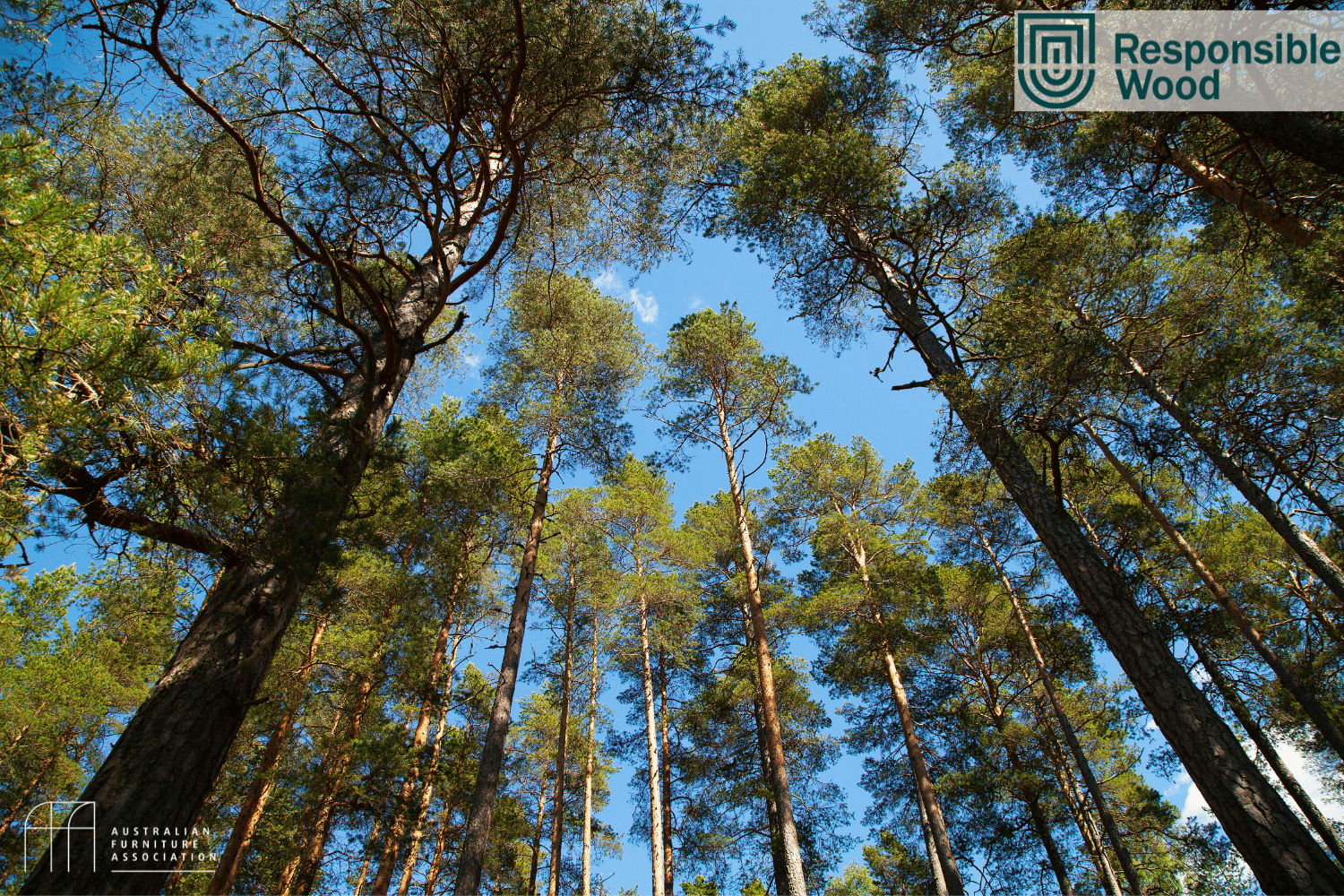
As the world becomes more conscious of environmental impact, sustainable forest management has emerged as a vital practice in ensuring the balance between economic growth and environmental preservation. Australian Furniture Association Partner, Responsible Wood, provides Sustainable Forest Management (SFM) certification, ensuring that the timber used in furniture manufacturing comes from forests that are conserved and managed responsibly to deliver social, environmental, and economic benefits—striking a harmonious balance between people, planet, and profit.
At its core, Sustainable Forest Management focuses on preserving the natural habitats of plants and animals, while respecting the rights of forestry workers and local communities. It ensures that forests continue to provide valuable resources and opportunities for income while remaining healthy and productive for future generations. By growing and harvesting timber sustainably, forest managers create long-term incentives to responsibly manage forests, striking an equilibrium between conservation and economic use.
Why Sustainable Forest Management Matters
Forests are the lifeblood of our planet. They produce oxygen, store carbon, and house an immense variety of biodiversity. Beyond their environmental value, forests play a key role in supporting livelihoods by providing materials for everything from housing to daily essentials, as well as offering recreational spaces and job opportunities. However, to maintain this critical balance, forests must be managed in a way that ensures their health and productivity for future generations.
This is where the Responsible Wood SFM certification comes in. Forest owners and managers who are certified under this scheme supply timber that demonstrates their commitment to sustainable practices. They comply with the rigorous Australian Standard® for Sustainable Forest Management, which covers a comprehensive set of requirements for protecting forests while allowing for their productive use. Certification is granted only after independent audits by accredited certification bodies, confirming that the forest management meets high sustainability standards.
Key Elements of the Sustainable Forest Management Standard
The Responsible Wood certification system is based on nine key elements that reflect the complexity of forest management. These elements ensure that forests are not only managed for their productive use but also for their ecological and social value.
- Systematic Management: Forests are managed systematically, ensuring that practices evolve with the needs of the environment and enterprise while aiming for continual improvement.
- Stakeholder Engagement: A proactive approach to involving stakeholders—from local communities to forestry workers—ensures that their interests and concerns are addressed.
- Biodiversity: Management practices must maintain or enhance the diversity of plant and animal species in the forest ecosystem.
- Forest Productive Capacity: This ensures forests remain productive, contributing both to the economy and ecological balance.
- Ecosystem Health: Forests must be managed to maintain their health and vitality, protecting them from degradation.
- Soil and Water Resources: Sustainable practices safeguard critical soil and water resources from erosion, pollution, or depletion.
- Forest Carbon: Responsible management helps forests contribute to the carbon cycle, playing a crucial role in carbon storage and climate change mitigation.
- Cultural Values: Forests are vital not only ecologically but also culturally. The certification process includes protecting the cultural and spiritual heritage of Indigenous and non-Indigenous communities.
- Social and Economic Benefits: Sustainable Forest management ensures that forests provide long-term social and economic benefits, such as job creation and community support.
Certification: A Commitment to Long-Term Sustainability
Forest managers who pursue Responsible Wood certification are making a clear commitment to the sustainability of their forests. This certification is not a one-time achievement but a continuous process of monitoring, improving, and adapting management practices to meet both present and future needs. Certified managers understand that balancing the environment, society, and economic growth is essential for the health of forests and the communities that depend on them.
The Bigger Picture: Responsible Forests for a Sustainable Future
The importance of forests cannot be overstated. Beyond their contribution to fighting climate change and supporting biodiversity, forests provide the raw materials that touch every part of our lives—from the wood in our homes to the packaging of goods we purchase online. Ensuring these materials come from sustainably managed forests is key to reducing environmental impact while supporting economic growth.
By choosing furniture that come from forests certified under Responsible Wood’s Sustainable Forest Management scheme, consumers can play a role in protecting these essential ecosystems. This certification provides a clear pathway for forest owners, manufacturers, and consumers to work together in creating a sustainable, circular economy—one that values the health of forests as much as their economic output.
As more forest owners adopt certification and embrace sustainable practices, the future of our forests becomes more secure. Responsible Wood’s Sustainable Forest Management certification stands as a beacon of assurance that the delicate balance between people, planet, and profit can be achieved—one tree, one forest at a time.
Click here to learn more about Sustainable Forest Management (SFM) certification
